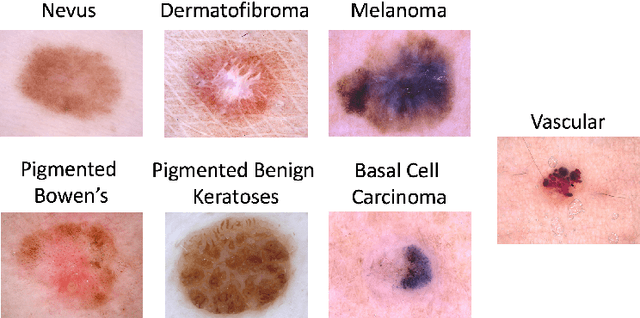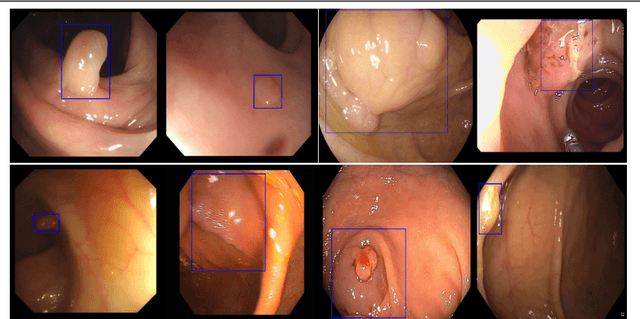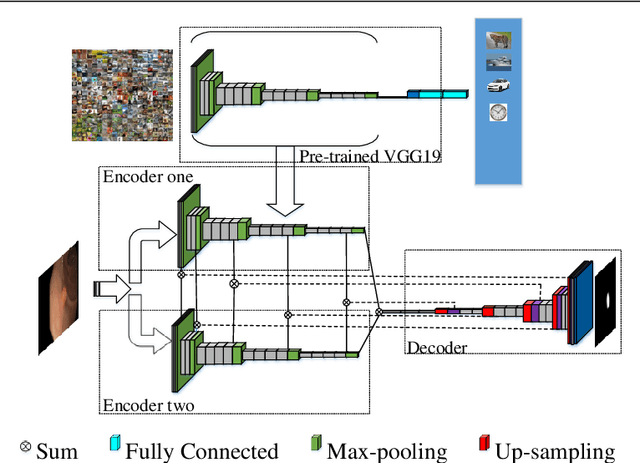Sule Yildirim
Ensemble of Convolutional Neural Networks for Dermoscopic Images Classification
Aug 15, 2018


Abstract:In this report, we are presenting our automated prediction system for disease classification within dermoscopic images. The proposed solution is based on deep learning, where we employed transfer learning strategy on VGG16 and GoogLeNet architectures. The key feature of our solution is preprocessing based primarily on image augmentation and colour normalization. The solution was evaluated on Task 3: Lesion Diagnosis of the ISIC 2018: Skin Lesion Analysis Towards Melanoma Detection.
Y-Net: A deep Convolutional Neural Network for Polyp Detection
Jun 05, 2018



Abstract:Colorectal polyps are important precursors to colon cancer, the third most common cause of cancer mortality for both men and women. It is a disease where early detection is of crucial importance. Colonoscopy is commonly used for early detection of cancer and precancerous pathology. It is a demanding procedure requiring significant amount of time from specialized physicians and nurses, in addition to a significant miss-rates of polyps by specialists. Automated polyp detection in colonoscopy videos has been demonstrated to be a promising way to handle this problem. {However, polyps detection is a challenging problem due to the availability of limited amount of training data and large appearance variations of polyps. To handle this problem, we propose a novel deep learning method Y-Net that consists of two encoder networks with a decoder network. Our proposed Y-Net method} relies on efficient use of pre-trained and un-trained models with novel sum-skip-concatenation operations. Each of the encoders are trained with encoder specific learning rate along the decoder. Compared with the previous methods employing hand-crafted features or 2-D/3-D convolutional neural network, our approach outperforms state-of-the-art methods for polyp detection with 7.3% F1-score and 13% recall improvement.
 Add to Chrome
Add to Chrome Add to Firefox
Add to Firefox Add to Edge
Add to Edge